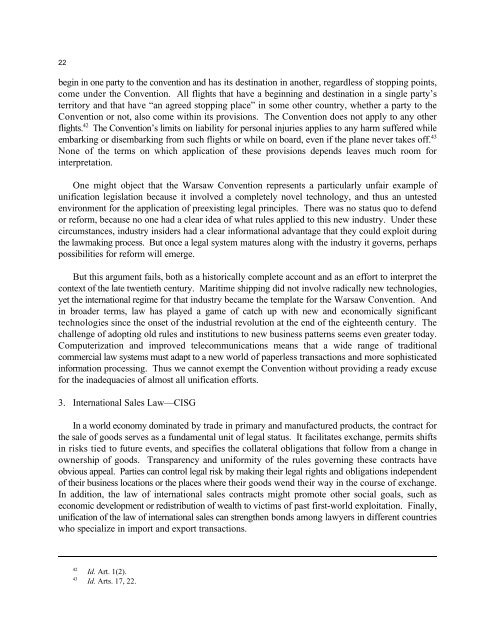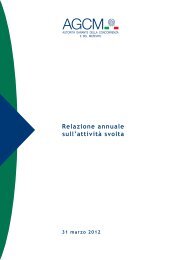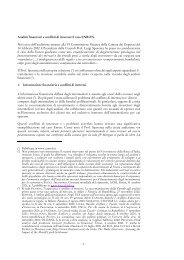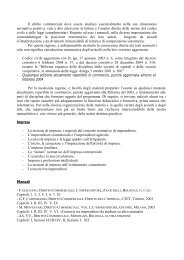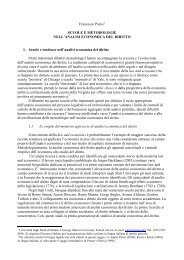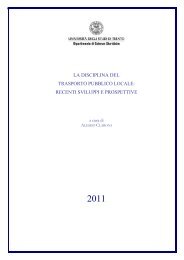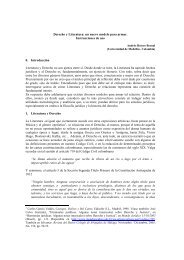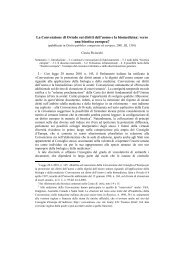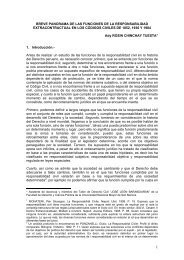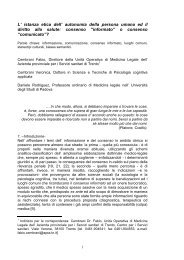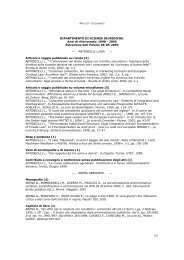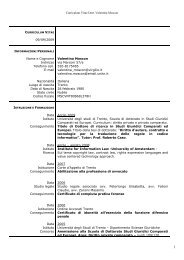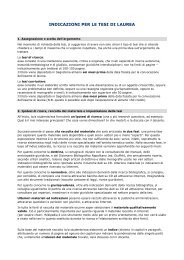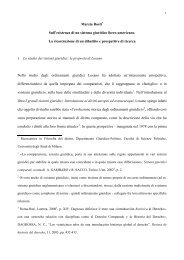The Futility of Unification and Harmonization in International ...
The Futility of Unification and Harmonization in International ...
The Futility of Unification and Harmonization in International ...
Create successful ePaper yourself
Turn your PDF publications into a flip-book with our unique Google optimized e-Paper software.
22beg<strong>in</strong> <strong>in</strong> one party to the convention <strong>and</strong> has its dest<strong>in</strong>ation <strong>in</strong> another, regardless <strong>of</strong> stopp<strong>in</strong>g po<strong>in</strong>ts,come under the Convention. All flights that have a beg<strong>in</strong>n<strong>in</strong>g <strong>and</strong> dest<strong>in</strong>ation <strong>in</strong> a s<strong>in</strong>gle party’sterritory <strong>and</strong> that have “an agreed stopp<strong>in</strong>g place” <strong>in</strong> some other country, whether a party to theConvention or not, also come with<strong>in</strong> its provisions. <strong>The</strong> Convention does not apply to any other42flights. <strong>The</strong> Convention’s limits on liability for personal <strong>in</strong>juries applies to any harm suffered whileembark<strong>in</strong>g or disembark<strong>in</strong>g from such flights or while on board, even if the plane never takes <strong>of</strong>f. 43None <strong>of</strong> the terms on which application <strong>of</strong> these provisions depends leaves much room for<strong>in</strong>terpretation.One might object that the Warsaw Convention represents a particularly unfair example <strong>of</strong>unification legislation because it <strong>in</strong>volved a completely novel technology, <strong>and</strong> thus an untestedenvironment for the application <strong>of</strong> preexist<strong>in</strong>g legal pr<strong>in</strong>ciples. <strong>The</strong>re was no status quo to defendor reform, because no one had a clear idea <strong>of</strong> what rules applied to this new <strong>in</strong>dustry. Under thesecircumstances, <strong>in</strong>dustry <strong>in</strong>siders had a clear <strong>in</strong>formational advantage that they could exploit dur<strong>in</strong>gthe lawmak<strong>in</strong>g process. But once a legal system matures along with the <strong>in</strong>dustry it governs, perhapspossibilities for reform will emerge.But this argument fails, both as a historically complete account <strong>and</strong> as an effort to <strong>in</strong>terpret thecontext <strong>of</strong> the late twentieth century. Maritime shipp<strong>in</strong>g did not <strong>in</strong>volve radically new technologies,yet the <strong>in</strong>ternational regime for that <strong>in</strong>dustry became the template for the Warsaw Convention. And<strong>in</strong> broader terms, law has played a game <strong>of</strong> catch up with new <strong>and</strong> economically significanttechnologies s<strong>in</strong>ce the onset <strong>of</strong> the <strong>in</strong>dustrial revolution at the end <strong>of</strong> the eighteenth century. <strong>The</strong>challenge <strong>of</strong> adopt<strong>in</strong>g old rules <strong>and</strong> <strong>in</strong>stitutions to new bus<strong>in</strong>ess patterns seems even greater today.Computerization <strong>and</strong> improved telecommunications means that a wide range <strong>of</strong> traditionalcommercial law systems must adapt to a new world <strong>of</strong> paperless transactions <strong>and</strong> more sophisticated<strong>in</strong>formation process<strong>in</strong>g. Thus we cannot exempt the Convention without provid<strong>in</strong>g a ready excusefor the <strong>in</strong>adequacies <strong>of</strong> almost all unification efforts.3. <strong>International</strong> Sales Law—CISGIn a world economy dom<strong>in</strong>ated by trade <strong>in</strong> primary <strong>and</strong> manufactured products, the contract forthe sale <strong>of</strong> goods serves as a fundamental unit <strong>of</strong> legal status. It facilitates exchange, permits shifts<strong>in</strong> risks tied to future events, <strong>and</strong> specifies the collateral obligations that follow from a change <strong>in</strong>ownership <strong>of</strong> goods. Transparency <strong>and</strong> uniformity <strong>of</strong> the rules govern<strong>in</strong>g these contracts haveobvious appeal. Parties can control legal risk by mak<strong>in</strong>g their legal rights <strong>and</strong> obligations <strong>in</strong>dependent<strong>of</strong> their bus<strong>in</strong>ess locations or the places where their goods wend their way <strong>in</strong> the course <strong>of</strong> exchange.In addition, the law <strong>of</strong> <strong>in</strong>ternational sales contracts might promote other social goals, such aseconomic development or redistribution <strong>of</strong> wealth to victims <strong>of</strong> past first-world exploitation. F<strong>in</strong>ally,unification <strong>of</strong> the law <strong>of</strong> <strong>in</strong>ternational sales can strengthen bonds among lawyers <strong>in</strong> different countrieswho specialize <strong>in</strong> import <strong>and</strong> export transactions.4243Id. Art. 1(2).Id. Arts. 17, 22.


